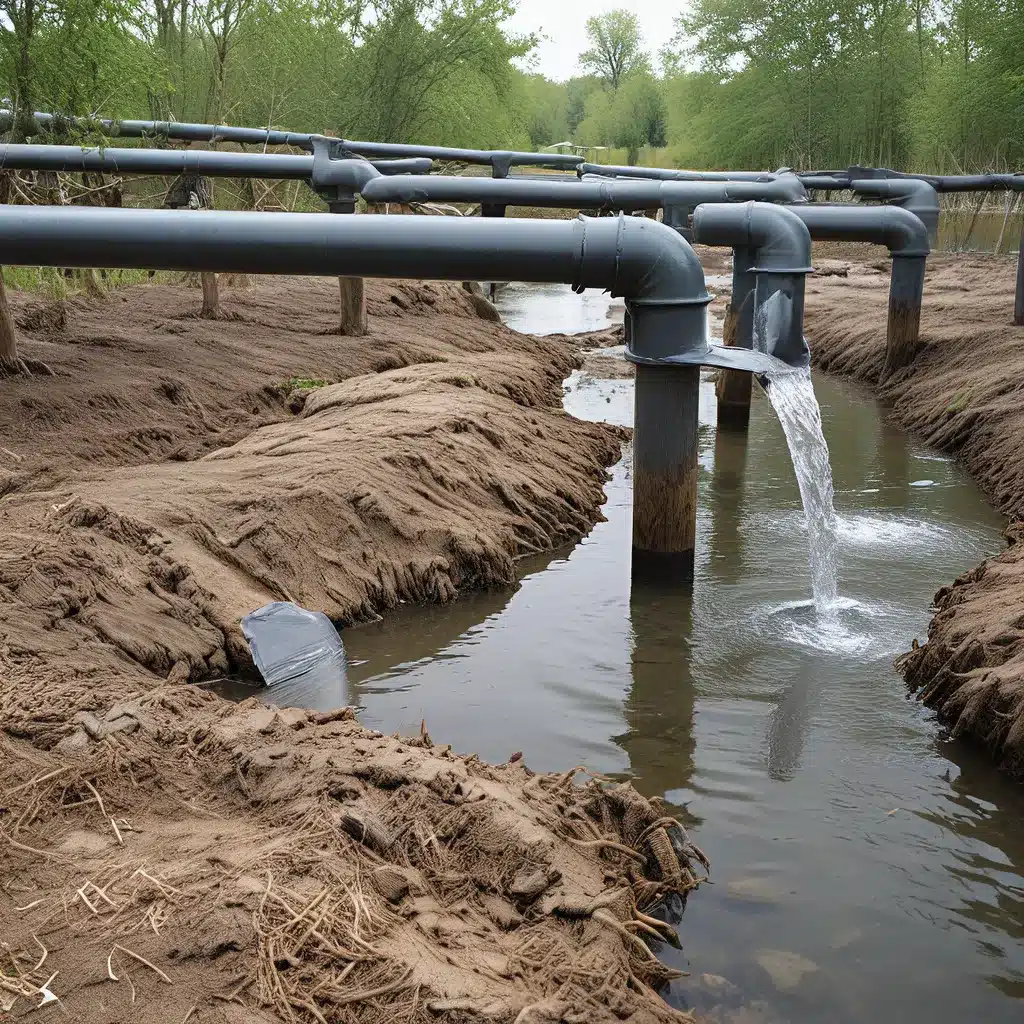
Surfing the Waves of Water Scarcity
As I gaze out over the shimmering horizon, I can’t help but feel a sense of unease. The sun-drenched landscapes that once thrived are now parched and barren, a stark reminder of the looming water crisis we face. But like any good surfer, I know that the key to navigating these uncharted waters lies in adapting to the ever-changing tides.
Water scarcity is a pressing issue that plagues numerous regions worldwide, particularly those with arid climates or facing challenges like overconsumption, pollution, and saltwater intrusion. And as the global population continues to grow, the demand for this precious resource only seems to intensify. But fear not, my friends, for I’m here to share some of the innovative strategies that communities are employing to stay afloat in the face of this daunting challenge.
Tapping into Potable Water Solutions
Let’s start with the lifeblood of any community – potable water. In regions where water sources are limited, ensuring the efficiency and reliability of these systems is paramount. Advanced technologies like desalination plants and efficient distribution networks are being deployed to meet the insatiable thirst of our urban centers.
Take Phoenix, Arizona, for example. This desert oasis has long struggled with water scarcity, but the city’s reliance on the Central Arizona Project (CAP), which delivers Colorado River water, has been a game-changer. Combined with the investment in state-of-the-art water treatment facilities, Phoenix has been able to quench the thirst of its rapidly growing population.
But the story doesn’t end there. As state officials in Arizona have announced, the days of unchecked development may be coming to an end. With diminishing groundwater reserves, the region is being forced to embrace a new era of water conservation and the pursuit of alternative sources. It’s a stark reminder that even the most advanced potable water systems are not immune to the challenges of water scarcity.
A Greyer Future: Embracing Greywater and Reclaimed Water
But where there’s a will, there’s a way, and the water management community has been hard at work devising innovative solutions to this pressing challenge. One such approach is the utilization of greywater and reclaimed water.
Greywater systems, which involve treating wastewater from sinks, showers, and laundry, and then reusing it for non-potable purposes like irrigation and toilet flushing, have been a game-changer in water-scarce regions. Take Puerto Rico, for instance, where these systems have been explored as a sustainable solution to the island’s water woes.
Similarly, reclaimed water, which is highly treated wastewater, can be used for irrigation, industrial processes, and other non-drinking applications. By reducing the demand for fresh water in these areas, greywater and reclaimed water systems help conserve precious resources and ensure a more sustainable water future.
Diving into Water Conservation Strategies
Of course, no discussion of sustainable water management would be complete without a deep dive into water conservation. Adopting water-efficient technologies, promoting responsible water usage practices, and implementing water-saving policies are all crucial components of this multi-faceted approach.
Take Florida, for example, which faces a looming water shortage due to its growing population, excessive public water demand, and increased threats of droughts. Officials in the Sunshine State are emphasizing water conservation strategies, including year-round restrictions, Florida-friendly landscaping, and investment in water infrastructure improvements. However, the lack of legislation and regulatory enforcement poses challenges in mitigating potential shortages, underscoring the need for immediate and decisive action.
Harvesting Rainwater: A Decentralized Approach
But the water management toolbox doesn’t stop there. Rainwater harvesting, a decentralized approach to water management, is another powerful weapon in the fight against water scarcity.
Mexico City, a sprawling metropolis grappling with significant water challenges, has embraced this innovative solution. By implementing rainwater harvesting initiatives in residential and commercial buildings, the city has been able to supplement its traditional water sources and ease the demand on its municipal water supplies.
But as with any solution, there are still hurdles to overcome. Inequalities in access to water persist, underscoring the importance of equitable water management strategies to ensure the well-being of all residents in water-challenged regions.
Navigating the Path Forward
As I sit here, contemplating the complexities of water management, I’m reminded of the wise words of Inland Waters Inc., a leading provider of water treatment and environmental services: “Effective management of water resources is paramount to ensure the well-being of communities, agriculture, and ecosystems.”
It’s a sentiment that resonates deeply with me. After all, water is the lifeblood of our planet, and the challenges we face in ensuring its sustainable use are daunting, to say the least. But as I’ve learned, the path forward is not one of despair, but rather a journey of innovation, collaboration, and a deep respect for our most precious resource.
So, my friends, let us embrace the waves of change and navigate these uncharted waters with a renewed sense of purpose. By implementing a comprehensive approach that includes potable water systems, greywater reuse, water conservation, and rainwater harvesting, we can transform water scarcity challenges into opportunities for manageable growth and enhanced sustainability.
The road ahead may be long and winding, but with the dedication and expertise of companies like Inland Waters Inc., I’m confident that we can weather any storm and emerge stronger than ever before. So let’s dive in, roll up our sleeves, and get to work – the future of our water resources depends on it.


